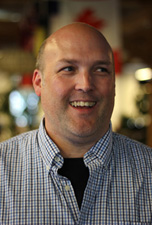I forget who, exactly, on Twitter shared this, but I recently watched a YouTube video titled “John Cleese on Creativity.” In the 36 minute video, the British comedian talks about what creativity is and how one encourages it. Although you might be inclined to think about creativity as an artistic endeavor, much of what we do as programmers, designers, and developers requires creativity, and so I found the video to be well worth the time.
Early on, Cleese clarifies that “Creativity is not a talent, it’s a way of operating.” He then discusses, based upon cited research, the two modes of how people can operate: open vs. closed. There’s a nice suggestion that Alexander Fleming would have been unable to discover penicillin had he not been operating in an open mode.
The bulk of the video is Cleese explaining how one sets up an environment that encourages creativity. Those suggestions could also apply to productivity in general. I’ll leave you to watch that, but I want to highlight this quote:
“It’s easier to do trivial things that are urgent then it is to do important things that are not urgent, like thinking. And it’s also easier to do little things we know we can do than it is to start on big things that we’re not so sure about.”
A lot of wisdom in that! And that quote puts a new perspective on procrastination.
Another interesting point made near the end of the video is the recommendation of not always accepting the first solution to a problem. Cleese suggests most people do this because they have a low tolerance for the anxiousness created by not having a solution to a problem. He argues that a better solution can often be found by deferring a decision until you absolutely have to, giving yourself the most possible time to consider the problem fully.
All in all, it’s a interesting video and quite worth the half an hour it’ll take to watch.
And then, go watch everything Monty Python ever did.






